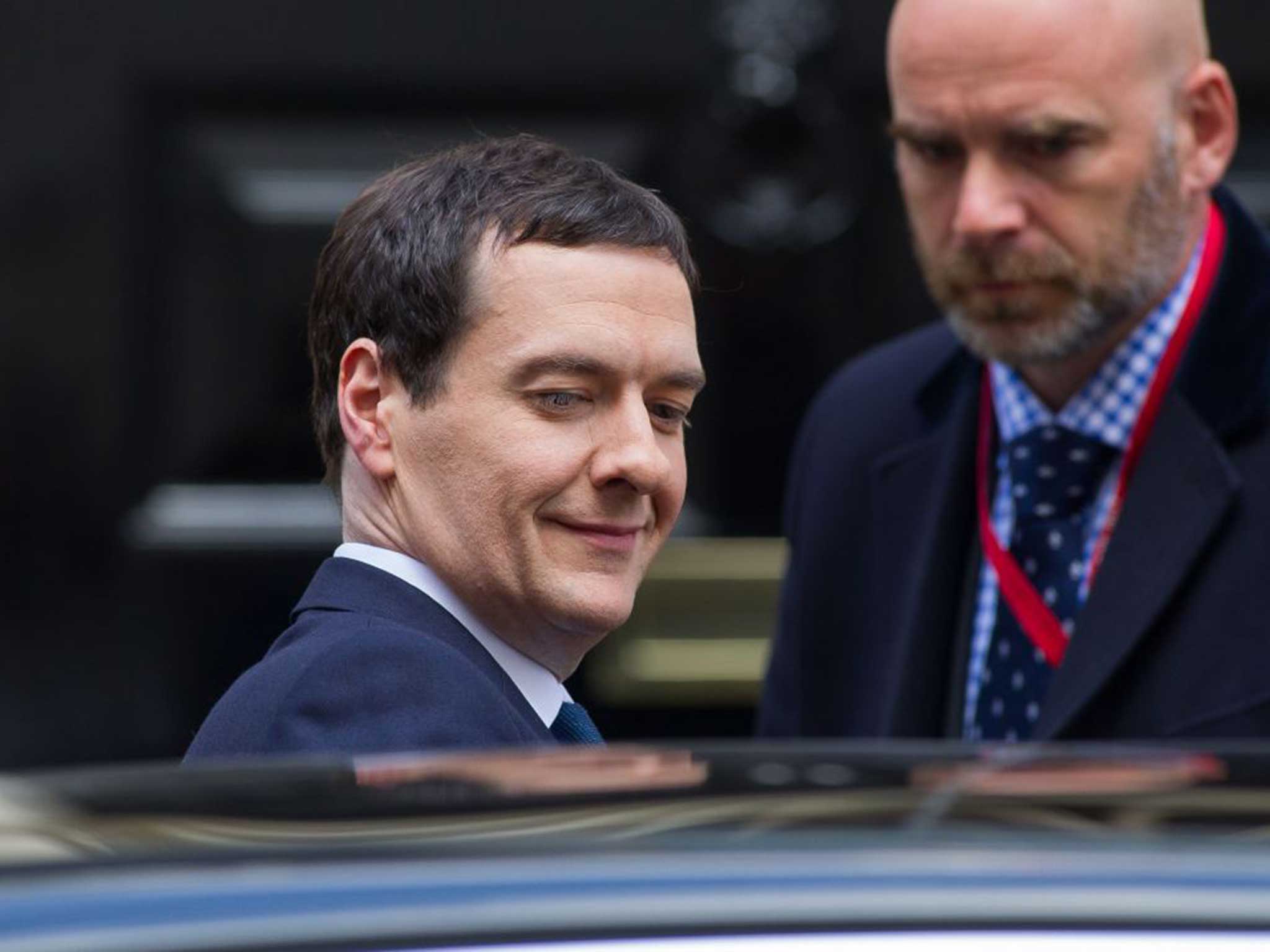George Osborne is playing with our economy in a vain attempt to gain a pointless political victory
This Budget has further proved that the Chancellor's spending cuts are a political choice and not an economic necessity


Last week George Osborne presented a Budget that was barely worth the paper it was printed on. We discovered that not only has he massaged the figures, including shuffling around billions in corporation tax receipts, but that he has also squeezed in a flotilla of unspecified cuts. The Chancellor is doing this not because he needs to balance the books, but because he wants to hit an arbitrary target for the government surplus in 2019-20.
This is an entirely political choice, not one made through economic necessity. Proof is provided by Osborne himself, as he now claims he can “absorb” £4.4 billion in disability cuts he has reversed, despite previously having claimed they were necessary.
He is still going ahead with tax breaks that will go overwhelmingly to the wealthiest 5 per cent, by cutting capital gains tax. And for big corporations he is continuing to slash corporation tax worth billions more in revenue. Obviously if he can’t collect Google’s taxes then he thinks he might as well cut them. Meanwhile he plans to cut real-terms funding for schools by 8 per cent.
In worsening economic circumstances, due (as the Office for Budget Responsibility have explained) to a weakening domestic economy, the Chancellor should have taken remedial action. Labour’s calls for a major boost to government investment have been joined by a growing coalition that now includes international expert bodies like the IMF and the OECD, alongside the TUC and CBI at home. Astonishingly, however, the Chancellor has planned for government investment to fall over the lifetime of this Parliament.
George Osborne’s record as Chancellor is one of successive failures. He has failed to close the government’s deficit, and is on course to miss his target for this financial year. He has failed to bring down the government’s debt, scheduled now to increase. He has burst his own welfare cap. Two out of the three planks of his entire fiscal programme are bust.
So the Chancellor must cling to his ludicrous surplus target for 2019-20. Not a single credible economist can be found to justify it, but if the Chancellor loses this, the sacrifices of the last few years would appear to have been in vain.
Pinning everything on the surplus has meant collapsing the rest of the Budget. Taking the unspecified cuts and U-turns together leaves the national finances with a £11.9bn black hole over the next five years.
In the final year of this Parliament, when Osborne’s all-important surplus target is due to be met, Osborne has a £6.8bn hole in the public finances, made up of unspecified cuts, the U-turn on Personal Independence Payments, and a squeeze on public sector bodies paying pensions. The last is a particular concern, since funding for the £2bn extra Treasury demand could come even from supposedly “protected” departments.
To fill the hole in the Chancellor’s accounts will require either steep extra cuts, or stealth tax rises equivalent to over 1p on the basic rate of income tax. I suspect George Osborne, more chancer than Chancellor, is trying to bank on the official forecasts turning in his favour again, come the autumn. But with the Office for Budget Responsibility now saying that good news last year was a “false dawn”, this is a shockingly large gamble for him to take. Even now they think there is a less than 50:50 chance of him hitting his target.
This is no way to manage an economy. George Osborne’s cowardly political manoeuvring has subjected the most vulnerable to unnecessary worry, and left the entire national budget adrift. It is time for him to ditch his failed surplus target, and introduce some sound economic principles to his policy. Labour’s Fiscal Credibility Rule, drawn up with world-leading economists, provides a robust means to ensure the government’s deficit is paid down, but still allows government with the capacity to invest in the future. We’ve offered to discuss this and other alternatives with the Treasury. But first the Chancellor must stop playing short-term politics, and start to act in the long-term interests of the whole country.
The truth is that the Chancellor is happy to break the rules to suit himself and a wealthy few. Instead Labour wants to rewrite the rules so we have an economy that works for all.
Join our commenting forum
Join thought-provoking conversations, follow other Independent readers and see their replies
Comments